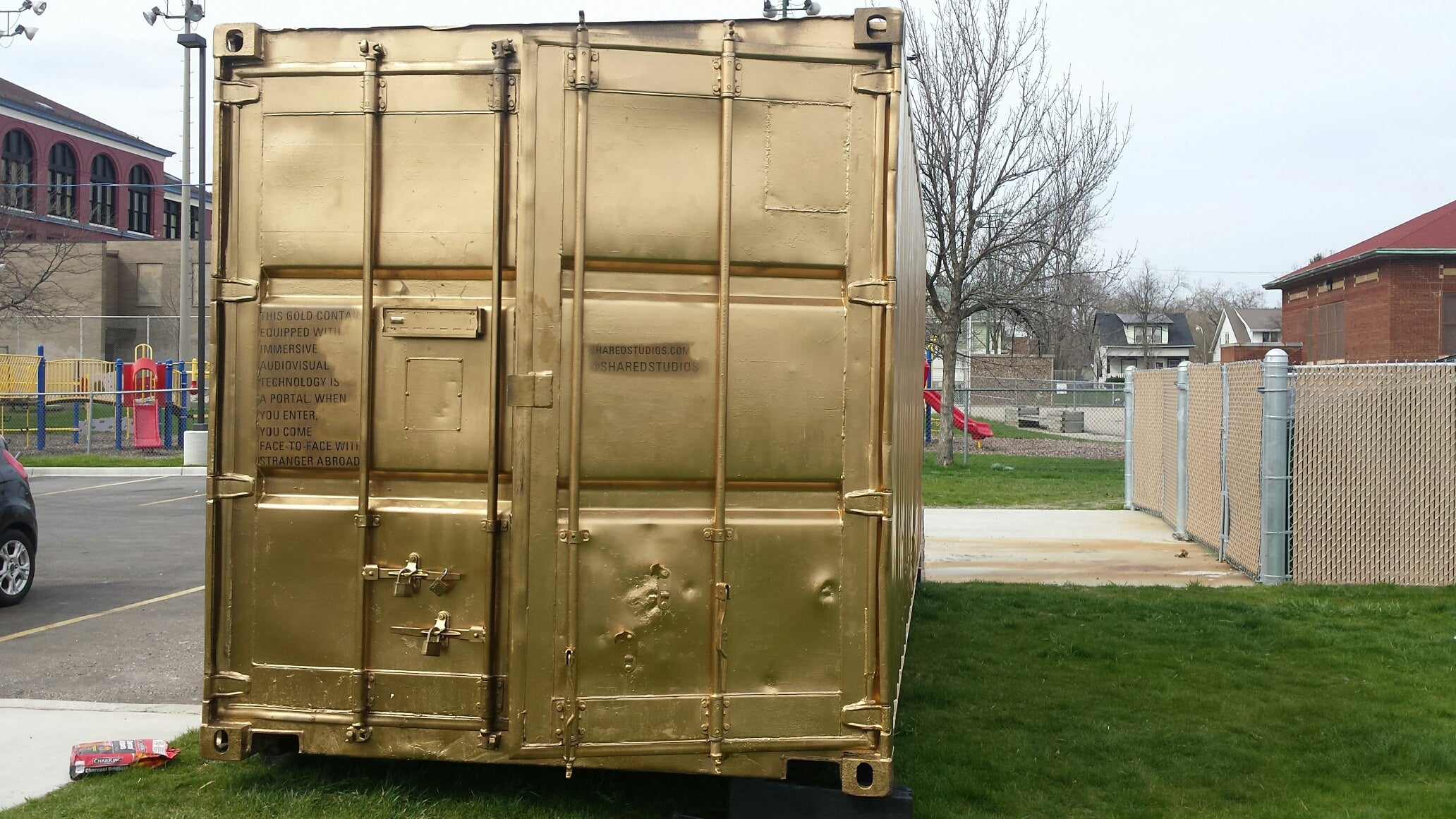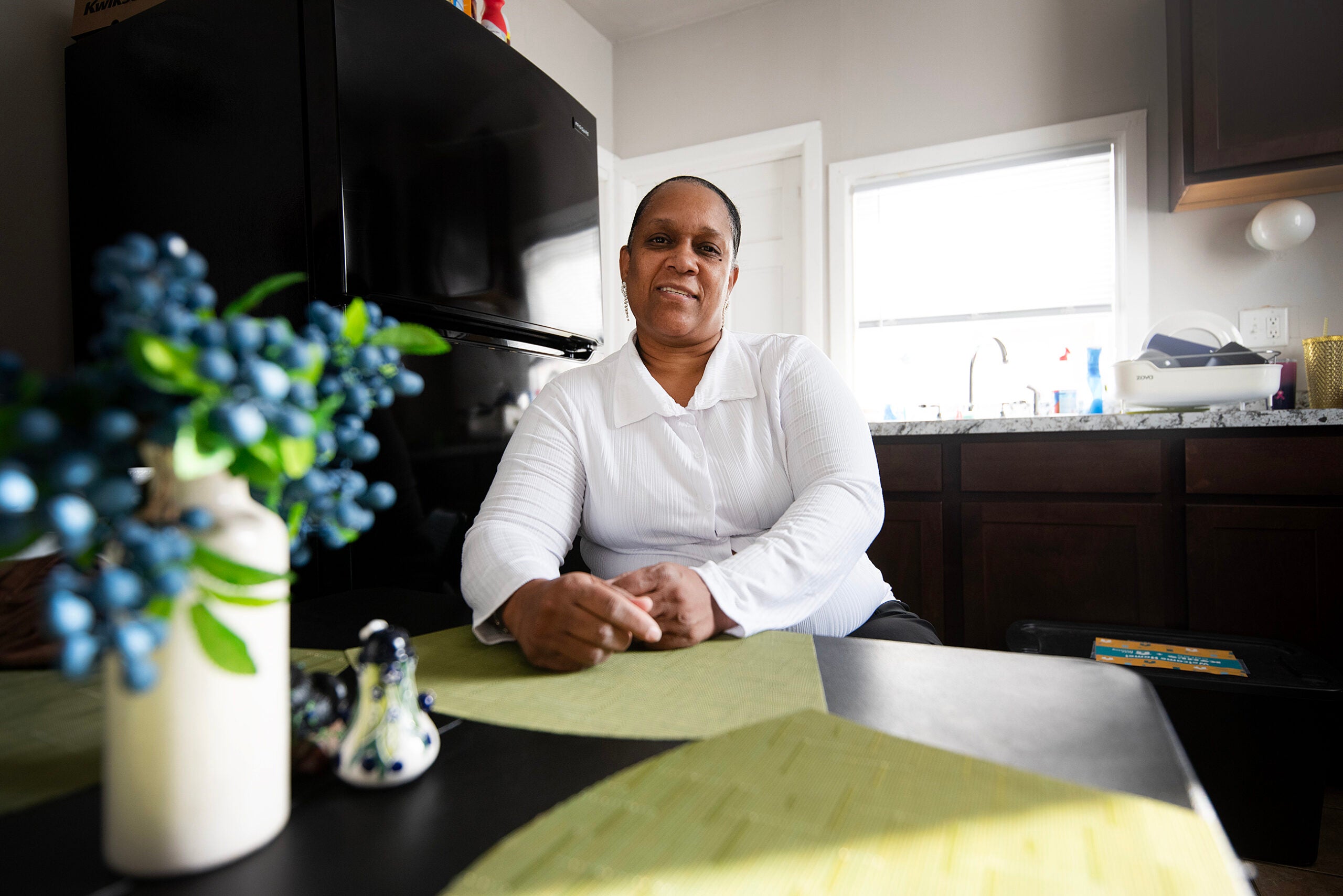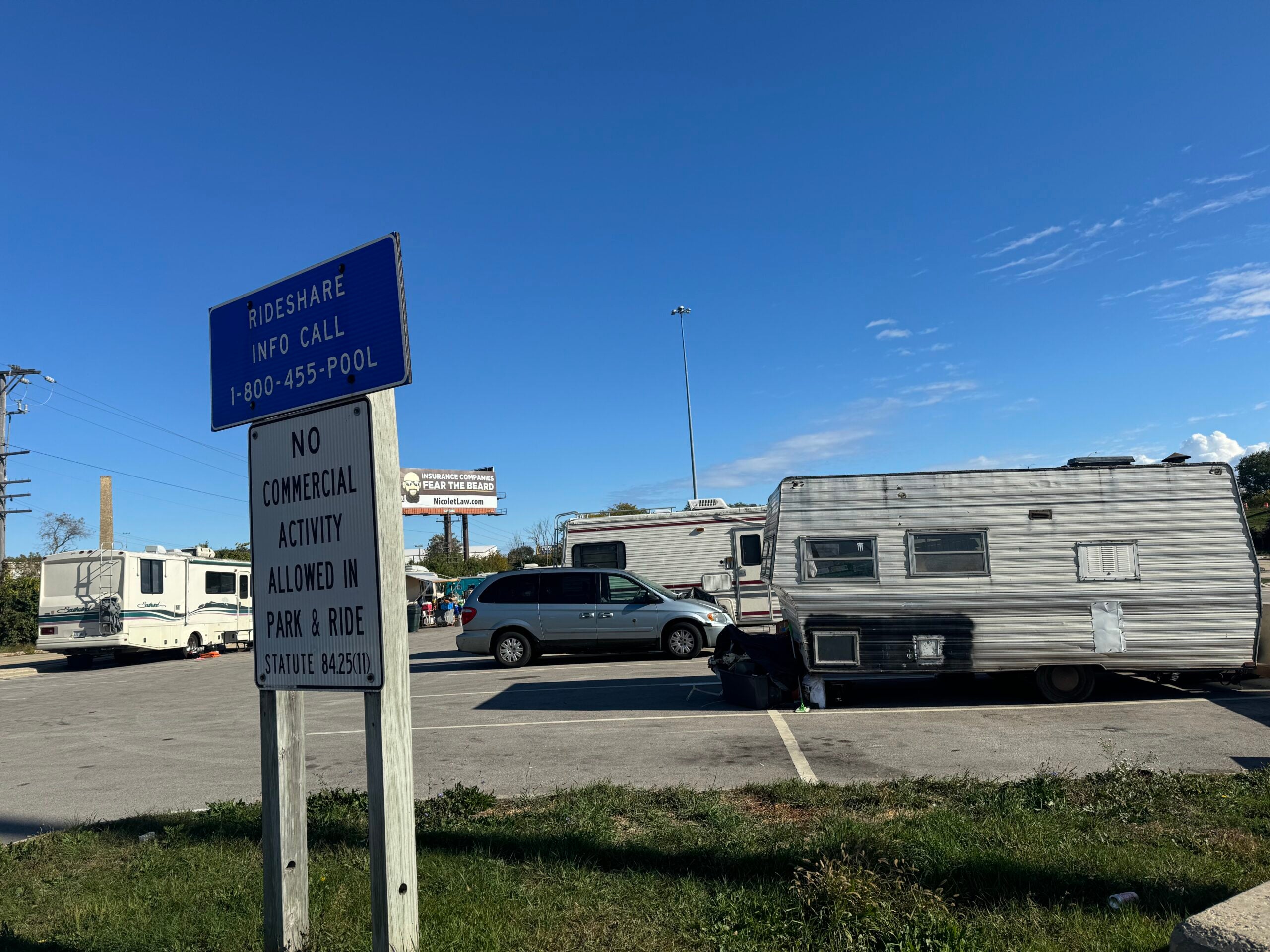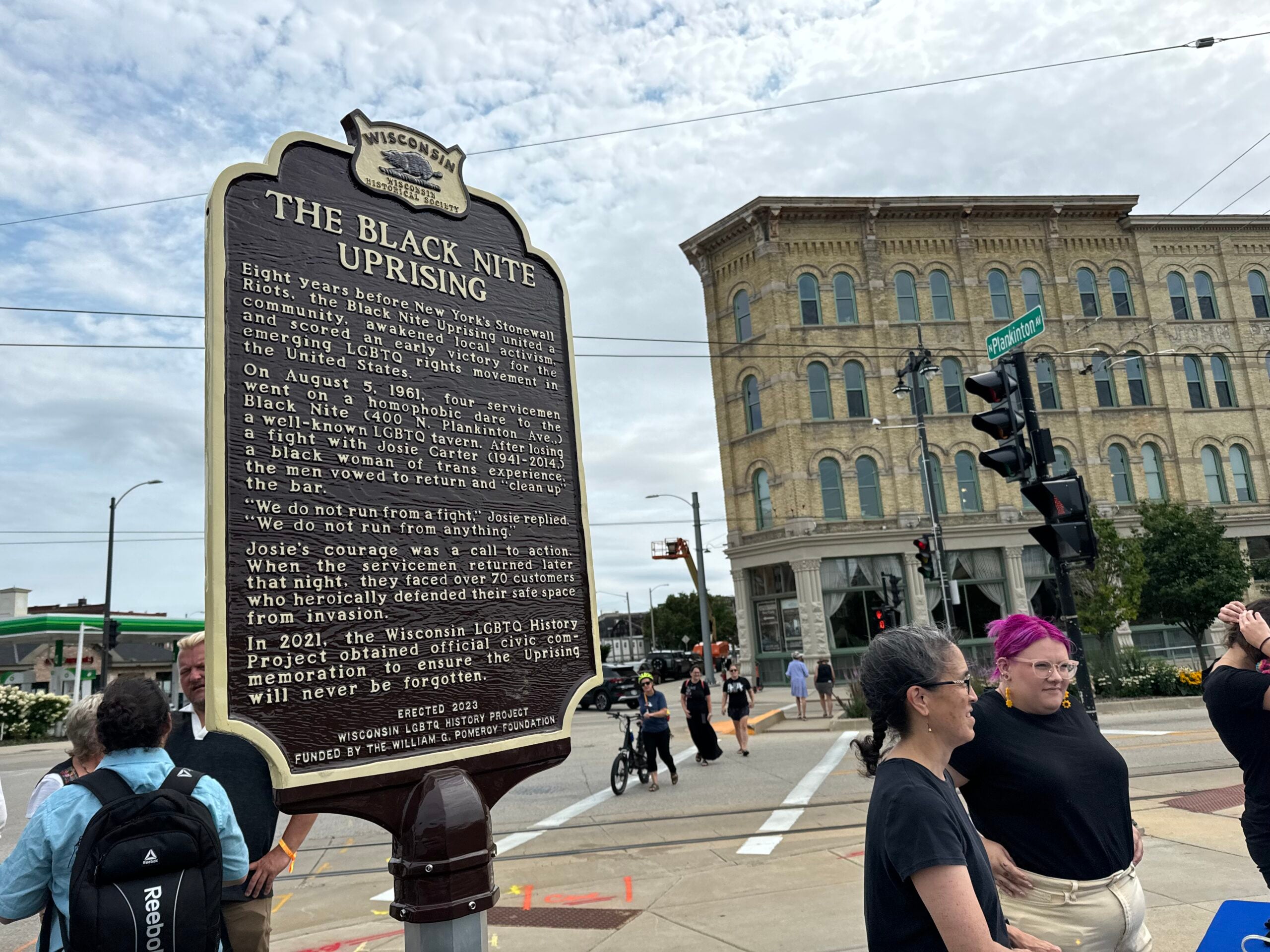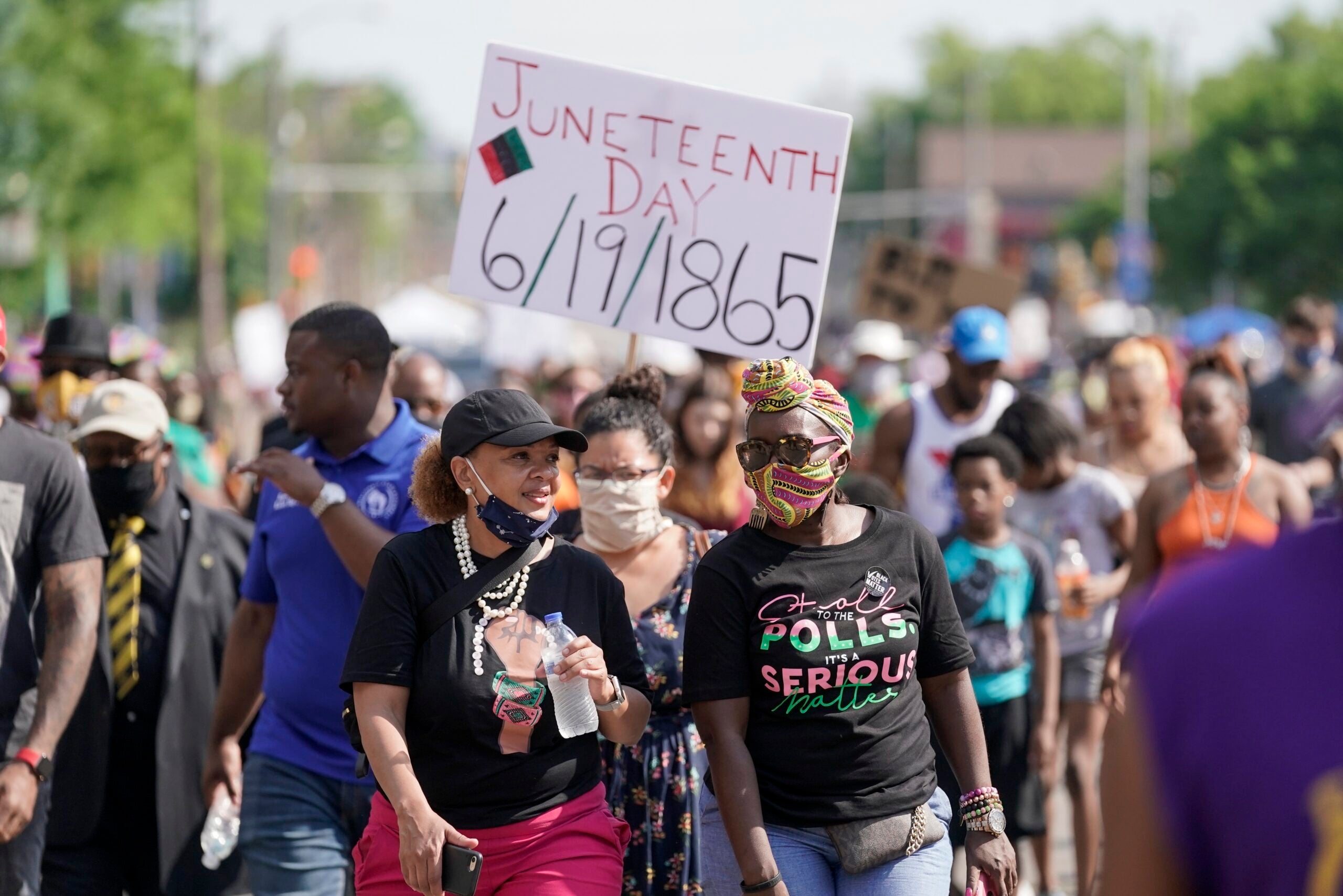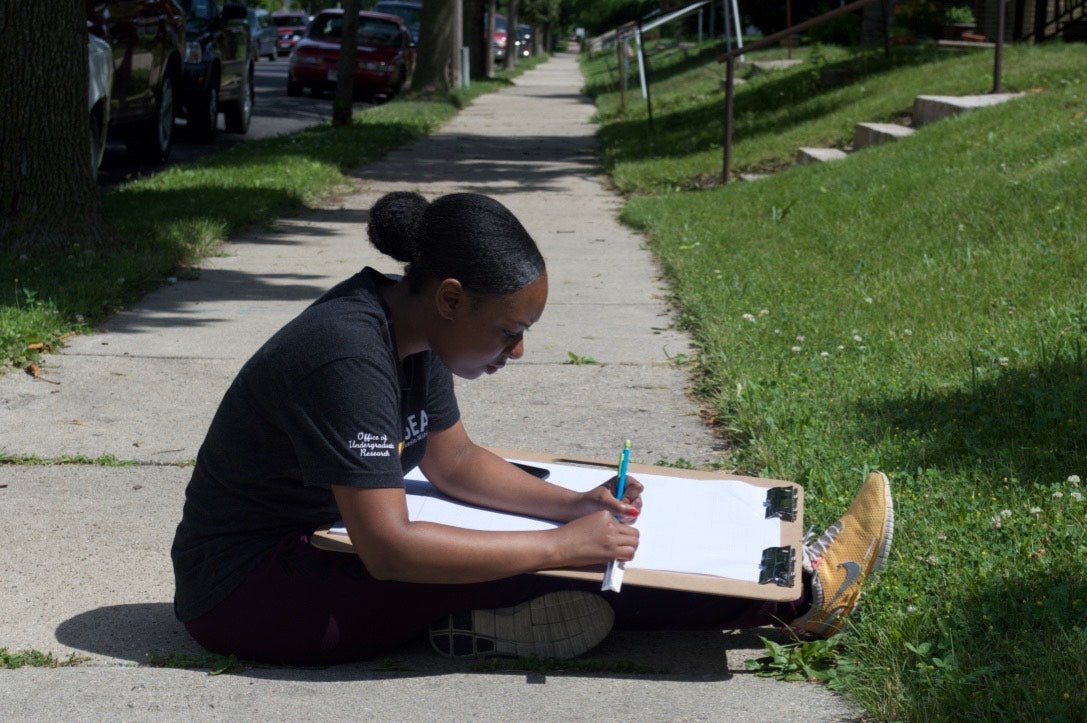Recently, groups of residents from Milwaukee and Newark, New Jersey met to share ideas and strategies they use to reduce violence in their respective communities. The conversation gave the groups — both from low-income, mostly black neighborhoods — an opportunity to delve into some weighty topics like prisoner re-entry, and share a few laughs in a face-to-face setting, all while remaining more than 700 miles apart.
The gathering was part of an ongoing “portal” installation connecting the two cities by an online video link. In Milwaukee, a gold 15-foot shipping container has been outfitted with an 8-foot video screen and a wide-angle camera to effectively put anyone who steps inside in the same room as their New Jersey counterparts.
The Milwaukee portal is outside a youth center in the city’s Amani neighborhood, a low-income area dealing with a substantial amount of crime. Community organizer Dennis Walton said he sees value in swapping insights with Newark residents who deal with similar issues.
Stay informed on the latest news
Sign up for WPR’s email newsletter.
“Whatever we can to do promote safety,” he said. “We learn that some of the things happening in our community are the same things people are dealing with in their neighborhoods and their communities, we can talk about the experiences, what works for them, what works for us.”
The portal chats are also expected to be about the arts. Mikel Floyd Pruitt said he’ll be helping to program Milwaukee performances on Saturdays.
“I look forward to having some interesting interactions between some of our artists and some of the artists there, at the same time,” Pruitt said. “So maybe we can come up with new artworks using the portal.”
That idea got a positive response from those on the Newark side.
School groups and arts organizations can also use the Milwaukee portal to connect with other parts of the world, and the units in Milwaukee and Newark will be open for focused dialogues three days a week.
Amar Bakshi of the Washington-based group Shared Studios devised the portals. He said he hopes the two-month operation in Milwaukee is meaningful.
“I mean anyone could use Facebook Messenger to talk to someone in Rwanda, but you only have a moment to do it, it isn’t clear why or the context, so this is providing a bit of a context for that, for people to indulge that basic human curiosity and spark it a little more, too,” he said.
A foundation grant is helping pay for the Milwaukee and Newark portals. Researchers at Yale and Rutgers universities plan to analyze edited conversations about police-community relations.
Wisconsin Public Radio, © Copyright 2025, Board of Regents of the University of Wisconsin System and Wisconsin Educational Communications Board.
